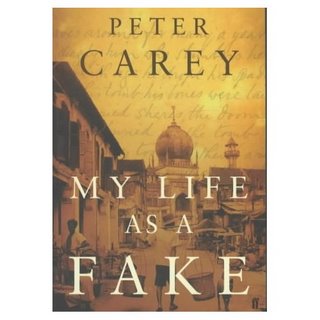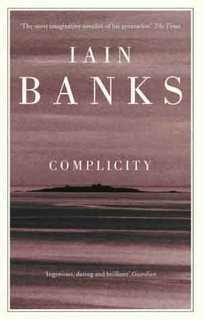You can also find this article here.
WARNING: I would advise anyone who has not watched the movie to do so before reading this review. While I do not give away any major spoilers, there is enough to spoil it for those who have not seen the movie.
I read The Prestige by Christopher Priest when I was a freshman in college. I remember how much I was in love with the book for the first hundred or so pages. How beautifully Priest paved the plot with layers of historical facts, magic, and mystery. It was a brilliant premise, and promised an equally brilliant resolution. It was one of those books that you hope and pray will live up to its own expectations.
Sadly, in this case, it was not to be. Halfway through, I had begun to feel that Priest was writing himself into a box. The Prestige, I felt, was a story that could never have lived up to the promise of its set-up because no one could write a conclusion to match the initial brilliance of the tale.
I stand corrected five years later. Jonathan Nolan, brother of Christopher Nolan the director, has managed to turn the weakest element of the novel - its meandering, anti-climactic plot - into The Prestige’s crowning achievement.
It was fascinating for me, someone who had read The Prestige so long ago, to watch the film for the first time. I went to the theatre with a certain lack of enthusiasm, remembering only vaguely the details of the plot but clearly the strong feeling of disappointment in the conclusion of the book. I also doubted my ability to be truly enthralled by the movie since like other movies such as The Usual Suspects and The Sixth Sense, it seemed The Prestige would depend on what the promos had touted to be its twist ending, which had already been revealed to me by the book.
The reason that propelled me to the movie theatre was a sense of curiosity; I wanted to see what Jonathan and Christopher Nolan could do in their adaptation. After all, the premise was wonderful, the cast was designed to bring in the big bucks — it was only left to be seen whether the plot would take the disappointing turn for the worst as the book had done. Let’s just say that it’s nice to be surprised by a movie. Jonathan Nolan has managed to create a work that can only be described as a loose translation of Priest’s original. The plot has been fine-tuned to play with a level of perfection that was unknown to the novel.
It also didn’t matter that I knew the twists of the movie. In fact, to the observant viewer, Angier’s (Hugh Jackman) secret is revealed early on as he stands in the field of top hats. It dawned on me as I walked out of the theatre elated that the secret to The Prestige, as it was with Memento, (the Nolan brothers' masterpiece to date) is that the while the twist ending is fantastic or exceedingly weird (depending on your tastes), it does not make or break the movie. To use a cliché, the ending is the icing on an exquisitely crafted cake, something that will be apparent on repeated viewings as the viewer’s attention is less focused on what is to come and more on how the magicians got there. Here lies the genius of the Nolan brothers; their path to the ending is littered with subtle hints about both men’s secrets and the sacrifices that are inherent with keeping those secrets.
Therein also lies the emotional impact of the story, something that I am disappointed but not surprised that many critics did not pick up on. You have to be aware of the ending to truly appreciate Borden’s (Christian Bale) apology to Fallon - “Sorry about Sara” - as he is dragged away to be hanged. You have to be aware of the ending to understand the deranged, sacrificial nature of Angier’s triumphant last act in the machine that Tesla makes for him. To sum it up, you have to watch the movie twice to truly see the brilliance of what Jonathan and Christopher Nolan have created.
On a side and purely personal note, if Jonathan Nolan does not win the Oscar for this brilliantly scripted adaptation of the novel, I swear I will never watch the Oscars again.
There remains only one argument to make: The Prestige, both the book and the movie, at the very crux is about obsession. I’m slightly puzzled by those reviewers who have complained that the characters are cold, one-dimensional, and are solely defined by their obsessions. I mean after all, isn’t that the whole point of the movie? It seems to be wish-fulfillment rather than critical evaluation to want warmer, multidimensional characters. It is also an evaluation from those who have only seen the movie once, because I believe the dimensions of Jackman's and Bale’s characters are more apparent in subsequent viewings.
But even if this were not the case, would The Prestige have been a better movie if either man showed other interests or had more love to give to the women in their lives? Yes, if film was a love story or a simple period piece. No, if it is to remain a story of obsession. After all, Angier and Borden are defined by their obsession — they are essentially not the characters that they are without their obsessions. For them to be multi-dimensional (as the reviewers want them) would be superfluous to the movie.Certainly, the characters would have been more likeable if we saw a warmer side, or if they didn’t treat the women they loved badly, or if they sought redemption at the end. But the end goal was not to make the viewer like the characters. It was Nolan’s intention to show you a movie about the destruction of two men by the shared obsession that defines them.
They have to be one-dimensional — obsessed, if you will. Because the question that should be asked is would either one have gone so far if they weren’t exactly like how they were portrayed? Would we have reached the horrific realizations that we do at the end, if the characters were not hell-bent single-mindedly obsessed with destroying each other? The characters as they are shown define the plot. Without these cold, obsessed men, there would be no Prestige. And I think that the Nolans did a damn good job showing the viewer just that.


